May 13, 2016 •
Wisconsin Elections Commission Administrator Selected
Elections Division Administrator Michael Haas has been selected to serve as the Administrator of the new Wisconsin Elections Commission. His 4-year term begins on Thursday, June 30. Haas currently supervises and has a strong working relationship with the staff who […]
 Elections Division Administrator Michael Haas has been selected to serve as the Administrator of the new Wisconsin Elections Commission. His 4-year term begins on Thursday, June 30. Haas currently supervises and has a strong working relationship with the staff who will transfer from Government Accountability Board to the Elections Commission. His appointment is subject to Senate confirmation in 2017.
Elections Division Administrator Michael Haas has been selected to serve as the Administrator of the new Wisconsin Elections Commission. His 4-year term begins on Thursday, June 30. Haas currently supervises and has a strong working relationship with the staff who will transfer from Government Accountability Board to the Elections Commission. His appointment is subject to Senate confirmation in 2017.
May 11, 2016 •
Director of Wisconsin GAB to Retire
Kevin Kennedy, director of the Government Accountability Board (GAB), will retire June 29, just before the agency is replaced by two new commissions. Kennedy was the director of the state Elections Board prior to serving as director of the GAB, […]
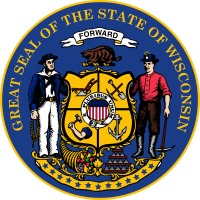 Kevin Kennedy, director of the Government Accountability Board (GAB), will retire June 29, just before the agency is replaced by two new commissions.
Kevin Kennedy, director of the Government Accountability Board (GAB), will retire June 29, just before the agency is replaced by two new commissions.
Kennedy was the director of the state Elections Board prior to serving as director of the GAB, and has presided over state elections for the last 37 years.
GAB will be replaced by an ethics commission and an elections commission on June 30. While the new commissions will be partisan, the Republicans who backed the change argue it will be fair because each party will have equal representation.
March 30, 2016 •
Wisconsin Senate Unofficially Adjourns
The Wisconsin Senate announced this month it is unlikely to meet again this year, bringing an unofficial end to a two-year session. Both houses of the legislature may choose to reconvene for a brief floor period in April. The legislature […]
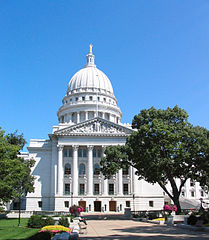 The Wisconsin Senate announced this month it is unlikely to meet again this year, bringing an unofficial end to a two-year session. Both houses of the legislature may choose to reconvene for a brief floor period in April.
The Wisconsin Senate announced this month it is unlikely to meet again this year, bringing an unofficial end to a two-year session. Both houses of the legislature may choose to reconvene for a brief floor period in April.
The legislature made several significant strides while in session, including partially eliminating the state’s prevailing wage, passing a contentious budget, replacing the Government Accountability Board with ethics and elections commissions, and overhauling state campaign finance laws.
December 16, 2015 •
Wisconsin Governor Signs Bills Overhauling Campaign Finance Laws and Dismantling GAB
On December 16, Gov. Scott Walker signed two bills amending campaign finance rules, increasing political contribution limits, and replacing the state’s Government Accountability Board (GAB) with two new agencies, one overseeing elections and the other overseeing ethics. Other changes include […]
 On December 16, Gov. Scott Walker signed two bills amending campaign finance rules, increasing political contribution limits, and replacing the state’s Government Accountability Board (GAB) with two new agencies, one overseeing elections and the other overseeing ethics.
On December 16, Gov. Scott Walker signed two bills amending campaign finance rules, increasing political contribution limits, and replacing the state’s Government Accountability Board (GAB) with two new agencies, one overseeing elections and the other overseeing ethics.
Other changes include resuming the practice of allowing lawmakers to determine funding for investigations of public officials, which had been halted when GAB was formed, and in changing the commission members from nonpartisan judges to appointees chosen by the governor and legislative leaders.
Kevin Kennedy, chief administrator of GAB, said there are still many questions to be answered regarding the transition. He said his agency would work with the governor’s administration to ensure a smooth transition.
The campaign finance bill is effective January 1, 2016. The new commissions replace GAB on July 1, 2016.
November 16, 2015 •
Wisconsin Senate Passes GAB and Campaign Finance Bills
Two bills passed the Wisconsin Senate early this month, likely changing the state’s future political landscape. One bill eliminates the Government Accountability Board and creates two bipartisan commissions to oversee ethics and elections. The other bill overhauls state campaign finance […]
 Two bills passed the Wisconsin Senate early this month, likely changing the state’s future political landscape. One bill eliminates the Government Accountability Board and creates two bipartisan commissions to oversee ethics and elections.
Two bills passed the Wisconsin Senate early this month, likely changing the state’s future political landscape. One bill eliminates the Government Accountability Board and creates two bipartisan commissions to oversee ethics and elections.
The other bill overhauls state campaign finance laws. It doubles campaign contribution limits and defines express advocacy. Critics argue it creates a potentially dangerous loophole for candidates to loosely coordinate with outside advocacy groups.
The Assembly passed both bills in October but must vote on the revised versions with Senate amendments. It will consider both bills on November 16 in an extraordinary session. The bills are expected to pass and be delivered to Gov. Scott Walker by the end of the month.
Photo of the interior of the Wisconsin State Capitol by Dori on Wikimedia Commons.
Wisconsin legislators introduced bills Wednesday to double political contribution limits, amend campaign finance rules, and divide the state’s Government Accountability Board. Critics argue the agency split is a bad idea, as it turns over control from nonpartisan judges to partisan […]
 Wisconsin legislators introduced bills Wednesday to double political contribution limits, amend campaign finance rules, and divide the state’s Government Accountability Board. Critics argue the agency split is a bad idea, as it turns over control from nonpartisan judges to partisan appointees.
Wisconsin legislators introduced bills Wednesday to double political contribution limits, amend campaign finance rules, and divide the state’s Government Accountability Board. Critics argue the agency split is a bad idea, as it turns over control from nonpartisan judges to partisan appointees.
The specific bill would create two new agencies, the Elections Commission and the Ethics Commission, to oversee laws on ethics, campaign finance, and lobbying. Legislators intend to amend the bill to ensure the six-member commissions are split evenly between Democrats and Republicans.
Both commissions would go into effect June 30, 2016.
August 21, 2015 •
Audit of Wisconsin Ethics Board Finds No Major Issues
An audit of how the Government Accountability Board (GAB) handles complaints has determined there are no significant problems with the current process used by the agency. The report by the Legislative Audit Bureau suggested two minor changes concerning timely resolution […]
 An audit of how the Government Accountability Board (GAB) handles complaints has determined there are no significant problems with the current process used by the agency.
An audit of how the Government Accountability Board (GAB) handles complaints has determined there are no significant problems with the current process used by the agency.
The report by the Legislative Audit Bureau suggested two minor changes concerning timely resolution of complaints and keeping the board provided with the names of at least three people eligible to be hired as special investigators.
GAB Director Kevin Kennedy said, “It puts to rest any questions as to whether the six board members exercise independent judgment when they make decisions about complaints, investigations and penalties.”
Gov. Scott Walker and state Republican leadership are expected to continue to push for an overhaul of the agency.
Legislation banning paid lobbyists from serving on boards, commissions, or committees was introduced in Common Council on July 7. Currently, legislative committees are comprised of alders and appointed city residents. As appointed members are chosen based on expertise, lobbyists who […]
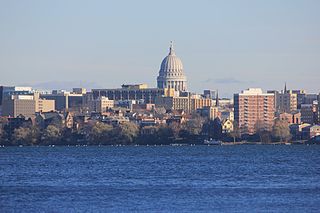 Legislation banning paid lobbyists from serving on boards, commissions, or committees was introduced in Common Council on July 7.
Legislation banning paid lobbyists from serving on boards, commissions, or committees was introduced in Common Council on July 7.
Currently, legislative committees are comprised of alders and appointed city residents. As appointed members are chosen based on expertise, lobbyists who are appointed often have potential conflicts of interest between their committee duties and their activities for paying clients.
By banning paid lobbyists, the sponsors hope to remove possible undue influence and ensure good government practices.
July 30, 2015 •
Wisconsin Special Election Announced
Gov. Scott Walker has set a special election date for the 99th Assembly District seat. Rep. Chris Kapenga vacated the seat after his election to the state Senate in July. The special election will be held September 29. If a […]
 Gov. Scott Walker has set a special election date for the 99th Assembly District seat. Rep. Chris Kapenga vacated the seat after his election to the state Senate in July.
Gov. Scott Walker has set a special election date for the 99th Assembly District seat. Rep. Chris Kapenga vacated the seat after his election to the state Senate in July.
The special election will be held September 29. If a primary is required, it will be held September 1.
July 21, 2015 •
WI Governor Wants to Scrap Ethics Board
Gov. Scott Walker announced he wants to dismantle the Government Accountability Board (GAB) and replace the independent board overseeing ethics laws with a new entity. The announcement came just days after a state Supreme Court ruling ended the John Doe […]
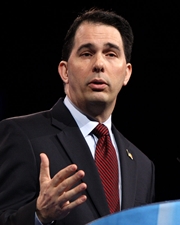 Gov. Scott Walker announced he wants to dismantle the Government Accountability Board (GAB) and replace the independent board overseeing ethics laws with a new entity. The announcement came just days after a state Supreme Court ruling ended the John Doe investigation into alleged violations by the governor’s campaign during the 2012 recall election.
Gov. Scott Walker announced he wants to dismantle the Government Accountability Board (GAB) and replace the independent board overseeing ethics laws with a new entity. The announcement came just days after a state Supreme Court ruling ended the John Doe investigation into alleged violations by the governor’s campaign during the 2012 recall election.
GAB had approved both the investigation and the recall election to which the alleged violations were related.
GAB Director and General Counsel Kevin Kennedy released a statement in support of the board noting it has been a model for other states on how to handle lobbying, ethics, and election laws.
Photo of Gov. Scott Walker by Gage Skidmore on Wikimedia Commons.
July 16, 2015 •
Wisconsin Supreme Court Rules on Coordinated Spending
Today, the Wisconsin Supreme Court ruled campaign finance regulations for coordinated expenditures are limited only to expenditures made for “express advocacy and its functional equivalent.” Express advocacy is a communication expressly advocating for the election or defeat of a clearly […]
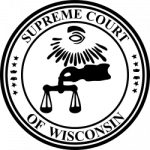 Today, the Wisconsin Supreme Court ruled campaign finance regulations for coordinated expenditures are limited only to expenditures made for “express advocacy and its functional equivalent.” Express advocacy is a communication expressly advocating for the election or defeat of a clearly identified candidate.
Today, the Wisconsin Supreme Court ruled campaign finance regulations for coordinated expenditures are limited only to expenditures made for “express advocacy and its functional equivalent.” Express advocacy is a communication expressly advocating for the election or defeat of a clearly identified candidate.
In Wisconsin v. Peterson, the court held the state’s legal definition of political purposes, upon which the campaign finance regulations rely, is unconstitutionally overbroad. Instead of invalidating the entire statute, the court narrowed the definition to expenditures for express advocacy and its functional equivalent, thereby rejecting the argument that in cases where there is not express advocacy the “coordinated expenditures constitute disguised contributions to the candidate or candidate’s campaign committee.”
June 26, 2015 •
Madison City Council to Consider Prohibiting Lobbyists from Serving on City Committees
Madison Ald. David Ahrens will soon propose an ordinance to ban registered lobbyists from serving on city committees. The proposal is expected to be introduced on July 7 as a means of eliminating both the appearance and reality of conflicts […]
 Madison Ald. David Ahrens will soon propose an ordinance to ban registered lobbyists from serving on city committees. The proposal is expected to be introduced on July 7 as a means of eliminating both the appearance and reality of conflicts of interest.
Madison Ald. David Ahrens will soon propose an ordinance to ban registered lobbyists from serving on city committees. The proposal is expected to be introduced on July 7 as a means of eliminating both the appearance and reality of conflicts of interest.
The ordinance would not only prohibit registered lobbyists from serving on city committees, but would also force those who are not lobbyists when appointed and who register later to vacate their seats.
Although the city currently requires lobbyist registration and disclosure, Ahrens argues the current law isn’t enforced.
May 5, 2015 •
Wisconsin Special Election Called for Senate District 33
Gov. Scott Walker has called a special election for July 21, 2015, to fill the Senate District 33 seat of Paul Farrow (R), who plans to resign on July 17. Farrow is resigning to focus on his new position as […]
 Gov. Scott Walker has called a special election for July 21, 2015, to fill the Senate District 33 seat of Paul Farrow (R), who plans to resign on July 17.
Gov. Scott Walker has called a special election for July 21, 2015, to fill the Senate District 33 seat of Paul Farrow (R), who plans to resign on July 17.
Farrow is resigning to focus on his new position as county executive of Waukesha County.
Rep. Chris Kapenga (R) and Brian Dorow, an associate dean at Waukesha County Technical College, have announced plans to run in the Republican primary on June 23.
March 24, 2015 •
Wisconsin Voter ID Law Remains, But Not for Spring Election
The U.S. Supreme Court has decided not to hear a case alleging the state’s 2011 voter ID law is unconstitutional. Following the decision, the Government Accountability Board consulted with the Wisconsin Department of Justice and determined photo ID will not […]
 The U.S. Supreme Court has decided not to hear a case alleging the state’s 2011 voter ID law is unconstitutional.
The U.S. Supreme Court has decided not to hear a case alleging the state’s 2011 voter ID law is unconstitutional.
Following the decision, the Government Accountability Board consulted with the Wisconsin Department of Justice and determined photo ID will not be required for the April 7 Spring Election.
Photo ID will be required for subsequent elections, including any special elections in 2015.
State and Federal Communications, Inc. provides research and consulting services for government relations professionals on lobbying laws, procurement lobbying laws, political contribution laws in the United States and Canada. Learn more by visiting stateandfed.com.


